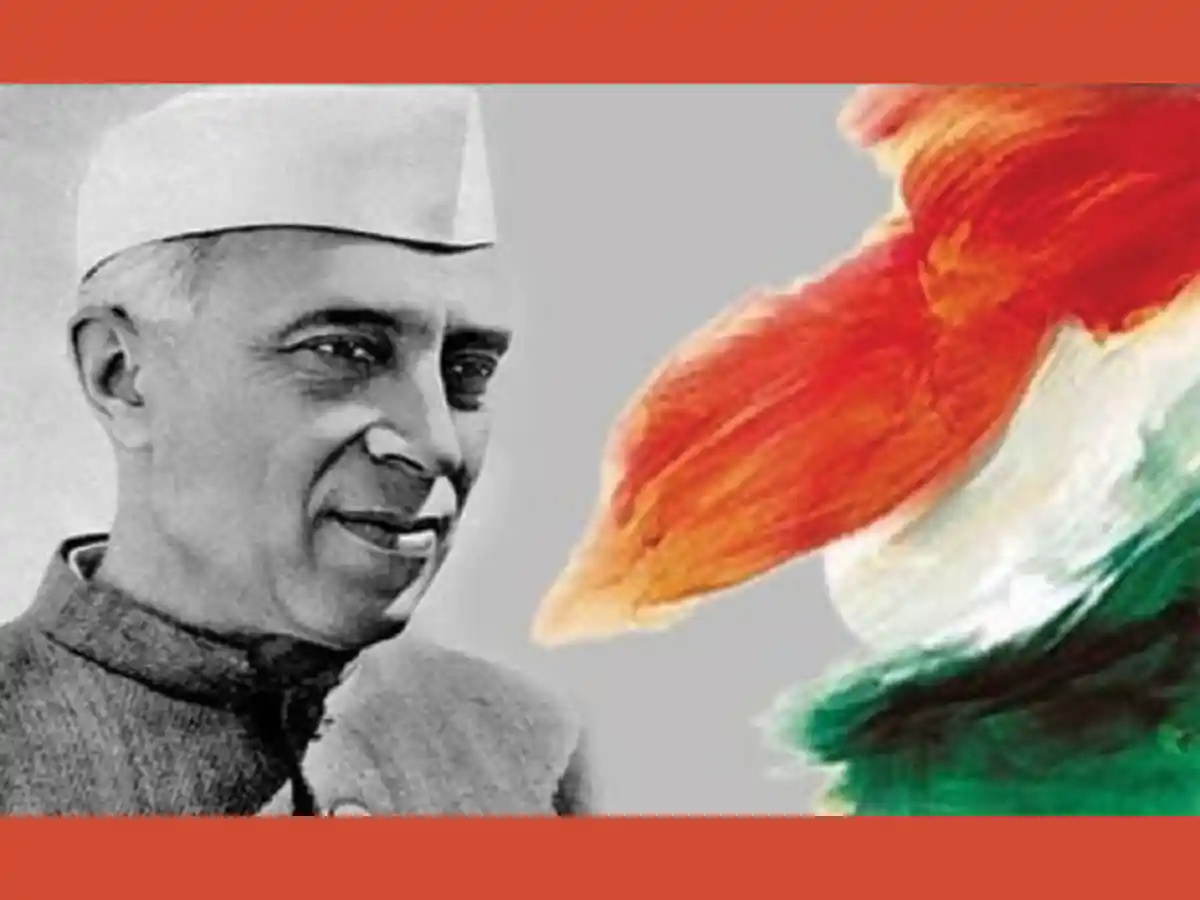How did Jawaharlal Nehru become the Prime Minister of Free India?
"At the stroke of the midnight hour, when the world sleeps, India will awake to life and freedom". These were the lines of our First Prime Minister - Jawaharlal Nehru. But did you know that Nehru nearly lost the title? This is the tale of Nehru's journey to becoming the first Prime Minister of India

Jawaharlal Nehru. Image Source - Weebly
Rewind your clocks to the August of 1947, and you would see India emerging free from the wrath of British colonial rule. The hopes of a free and independent nation were higher than before - and the aspiration to make India a much better and self-reliant country was even higher. To lead the free nation - that carried the hopes of millions of Indians - the nation needed powerful leaders. One such candidate was none other than Pandit Jawaharlal Nehru, who was soon to be the leader of a million dreams, carrying hopes and aspirations, through the midnight hour.
But how did Jawaharlal Nehru rise to power and become THE First Prime Minister of India?
As India’s freedom struggle was approaching its end, Mahatma Gandhi made his intentions clear. Indian National Congress (INC) should be dissolved. Why? He felt the objective of the INC was to liberate India from British rule; a goal which when accomplished, the organization should have had no existential purpose thereafter. Gandhiji wanted all leaders, who wanted to serve the nation, to contest in electoral politics. This meant that each leader should form their own political party, contest elections, win the hearts of the people, and then become a leader in a democratic sense.
This actually would have been democracy in the real sense - but it never happened. INC was a huge party that played an active role in the liberation of India from colonial rule. It became so prominent both among the party member and common citizens, that it never disbanded.
The election within the party had a dramatic sequence. Maulana Azad, then a senior leader of INC, was elected Congress president in the Ramgarh Session in 1940. But with the events that unfolded afterward including World War II, the Quit India Movement, and countless satyagrahas, most of the Congress leaders ended up in jails. Azad thus continued to be the Congress president until April 1946.
Once the election for the post of Congress president was announced, Maulana Azad expressed his desire for re-election.
Maulana’s desire for re-election made Gandhi upset. On 20th April 1946, Gandhi wrote to Maulana Azad:
“I have not spoken to anyone of my opinion. When one or two Working Committee members asked me, I said that it would not be right for the same President to continue…. If you are of the same opinion, it may be proper for you to issue a statement about the cuttings [the news item Gandhi had sent him] and say that you have no intention to become the president again…. In today’s circumstances, I would, if asked, prefer Jawaharlal. I have many reasons for this. Why go into them?”
On April 29, 1946, the election happened. It ended unfavourably for Nehru.
At that time only the Pradesh Congress Committees (or PCC) could elect the Congress president. The 12 out of 15 Pradesh Congress Committees nominated Sardar Patel. The other three abstained. Quite interestingly, no PCC nominated Jawaharlal Nehru.
However, Nehru was proposed by a few working committee members - which ironically had no authority to do so. After this, efforts began to persuade Sardar Patel to withdraw in favour of Jawaharlal.
Gandhi was even quoted saying this to Nehru:
“No PCC has put forward your name…only [few of] the working committee has.”
Jawaharlal allegedly stated that he won’t take second place. Gandhiji asked Patel to withdraw - which Patel did.
Firstly, for Patel, post or position was immaterial; and secondly, Nehru was keen that he should either lead the nation or stay out. After all, the rejection of Nehru also came with a possibility that it might drive him into opposition.
And then, that’s how, after Patel stepped down, Nehru took charge and became the first Prime Minister of Independent India.
While the controversy runs high, with many debating the logical and ethical aspects of this story, many consider Nehru to be a good leader nonetheless.
Before Independence, Nehru made it his priority to tackle poverty and make India a self-reliant nation, putting all efforts in terms of development and uplifting people from poverty. These include setting up infrastructure and nationalizing various sectors to make them internationally at par.
The education system created and promoted by Nehru enabled students from ordinary families to reach extraordinary heights. Nehru also strengthened the health services, engineering sectors, and energy sectors - establishing various institutions like AIIMS, agricultural universities, IITs, NITs, and so on.
Such changes had a lasting effect on India - reducing poverty, enhancing industries, and improving trade. Partly, this is the reason why Nehru became prime minister for three consecutive terms. The legacy of the first prime minister of India, thus, left an immense mark for generations to come - in Free India.


